Introduction
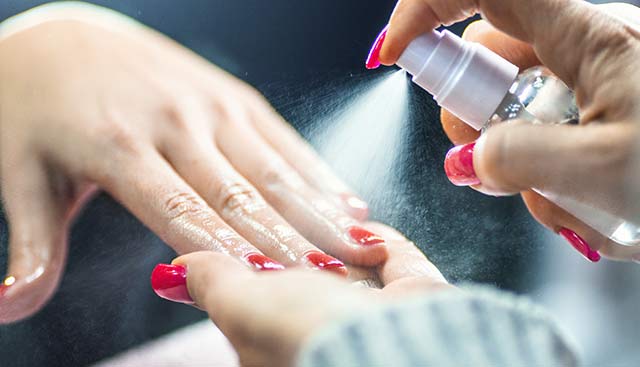
Dip nails, a popular nail enhancement technique, have been making waves in the beauty industry. As more people embrace this trend, it is essential to explore the potential health risks associated with dip nails. This article aims to shed light on the topic by examining the chemicals used in dip nails, the possibility of allergic reactions and nail infections, and debunking common myths regarding the link between dip nails and cancer. By understanding these risks and taking necessary precautions, individuals can make informed decisions about their nail care choices.
Overview Of Dip Nails And Their Growing Popularity
Dip nails have seen a significant surge in popularity in recent years. This nail enhancement technique involves dipping the nails into a powder and then sealing it with a protective topcoat. People are drawn to dip nails due to the long-lasting results and the wide range of colors and designs available. The convenience and durability of dip nails have made them a favorite among individuals looking for a low-maintenance and glamorous manicure option. However, it is crucial to explore the potential health risks associated with this trend to make informed choices about nail care.
Importance Of Investigating Health Risks Associated With Dip Nails
It is vital to investigate the potential health risks associated with dip nails for several reasons. Firstly, the popularity of dip nails has grown significantly, with more and more people opting for this nail enhancement technique. Therefore, it is essential to understand any potential health hazards that may be associated with this trend to ensure the safety and well-being of individuals. Secondly, understanding the risks allows individuals to make informed choices about their nail care and take necessary precautions to minimize any adverse effects. Lastly, investigating the health risks associated with dip nails helps to debunk any misconceptions and provide accurate information to the public.
Understanding Dip Nails
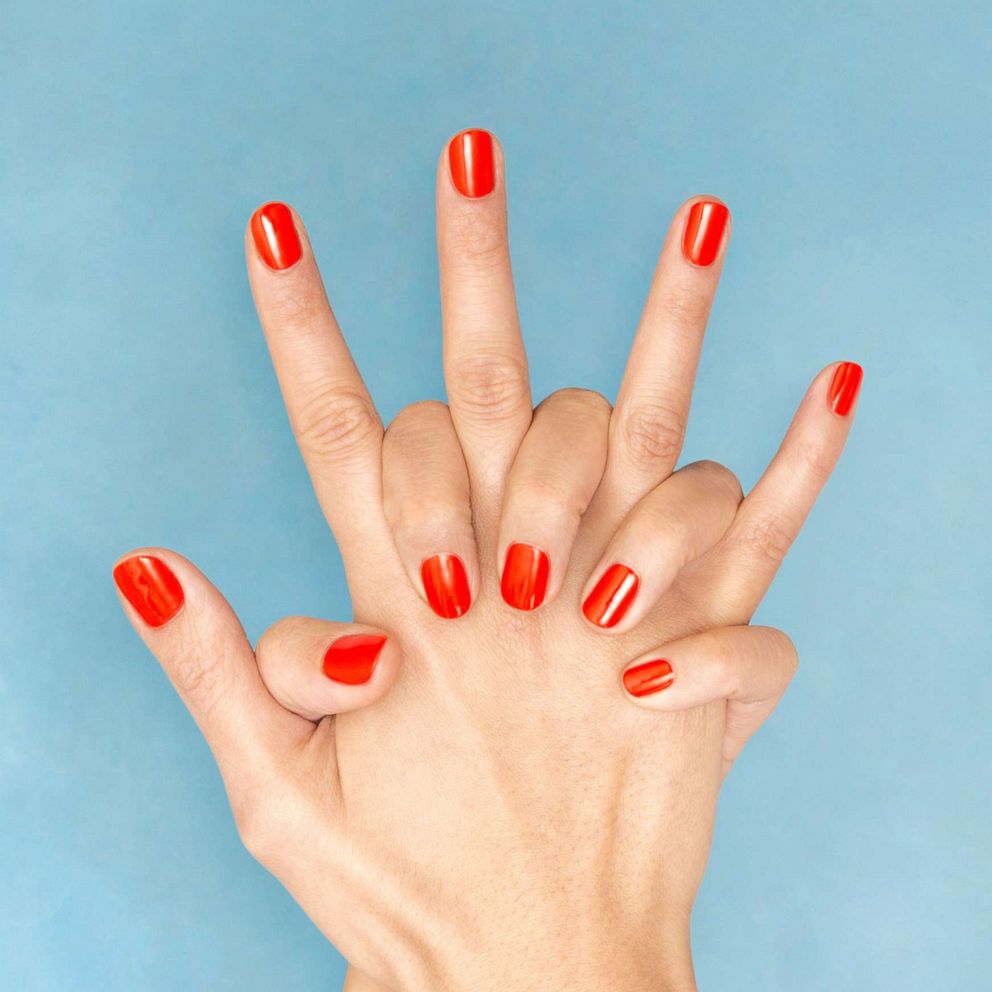
Dip nails, also known as SNS nails or powder nails, are a popular nail enhancement technique gaining traction in the beauty industry. Unlike traditional manicures, dip nails involve a process where the natural nails are dipped into a pigmented powder, resulting in a durable and long-lasting finish. The powder used in dip nails is typically made of acrylic or a combination of acrylic and other materials. This method differs from other nail enhancement methods, such as gel or acrylic nails, as it does not require UV or LED curing. Dip nails offer a quick and easy way to achieve strong and glossy nails without the need for harsh chemicals or extensive drying time.
What Are Dip Nails And How Are They Different From Other Nail Enhancement Methods?
Dip nails, also known as SNS nails or powder nails, are a popular nail enhancement technique in the beauty industry. Unlike traditional manicures, dip nails involve dipping the natural nails into a pigmented powder, resulting in a durable and long-lasting finish. The powder used in dip nails is typically made of acrylic or a combination of acrylic and other materials. This method differs from other nail enhancement methods, such as gel or acrylic nails, as it does not require UV or LED curing. Dip nails offer a quick and easy way to achieve strong and glossy nails without the need for harsh chemicals or extensive drying time.
Different Components Involved In The Dip Nail Process
During the dip nail process, several components are used to achieve the desired results. Firstly, a bonding agent is applied to the nail to ensure better adhesion of the powder. Next, the nail is dipped into a pigmented powder, which can be made of acrylic or a mixture of acrylic and other materials. Afterward, an activator or sealant is applied to harden the powder layer. Finally, the nails are buffed and a top coat is applied for added shine and durability. These components work together to create the long-lasting and glossy finish that dip nails are known for.
Potential Health Risks Of Dip Nails

Dip nails do come with potential health risks that users should be aware of. One concern is the use of chemicals in dip nail products, some of which have been identified as potential cancer risks and skin irritants. These chemicals can be harmful if inhaled or if they come into direct contact with the skin. Additionally, dip nails can increase the risk of allergic reactions and skin irritations due to the bonding and sealing agents used in the process. Nail infections and damage to the nail bed are also potential risks. It is important to understand and minimize these risks when considering dip nails as a nail enhancement option.
Chemicals Used In Dip Nails And Their Potential Health Effects
The chemicals used in dip nails can pose potential health risks to users. Some of these chemicals, such as formaldehyde and toluene, have been identified as potential cancer risks and skin irritants. Exposure to these chemicals can be harmful if inhaled or if they come into direct contact with the skin. The repeated use of dip nails can increase the risk of long-term exposure to these harmful chemicals, potentially leading to adverse health effects. It is important to be aware of these risks and take necessary precautions when considering dip nails as a nail enhancement option.
Allergic Reactions And Skin Irritations
Allergic reactions and skin irritations are potential side effects of dip nails. Some individuals may develop an allergic reaction to the chemicals used in dip nail products, such as the adhesives that hold the powders in place. This can result in redness, itching, and swelling of the skin around the nails. If you experience any signs of an allergic reaction or skin irritation after getting dip nails, it is important to discontinue use and consult a dermatologist. It is also recommended to give your nails time to recover between dip powder manicures to reduce the risk of skin irritations.
Nail Infections And Damage To The Nail Bed
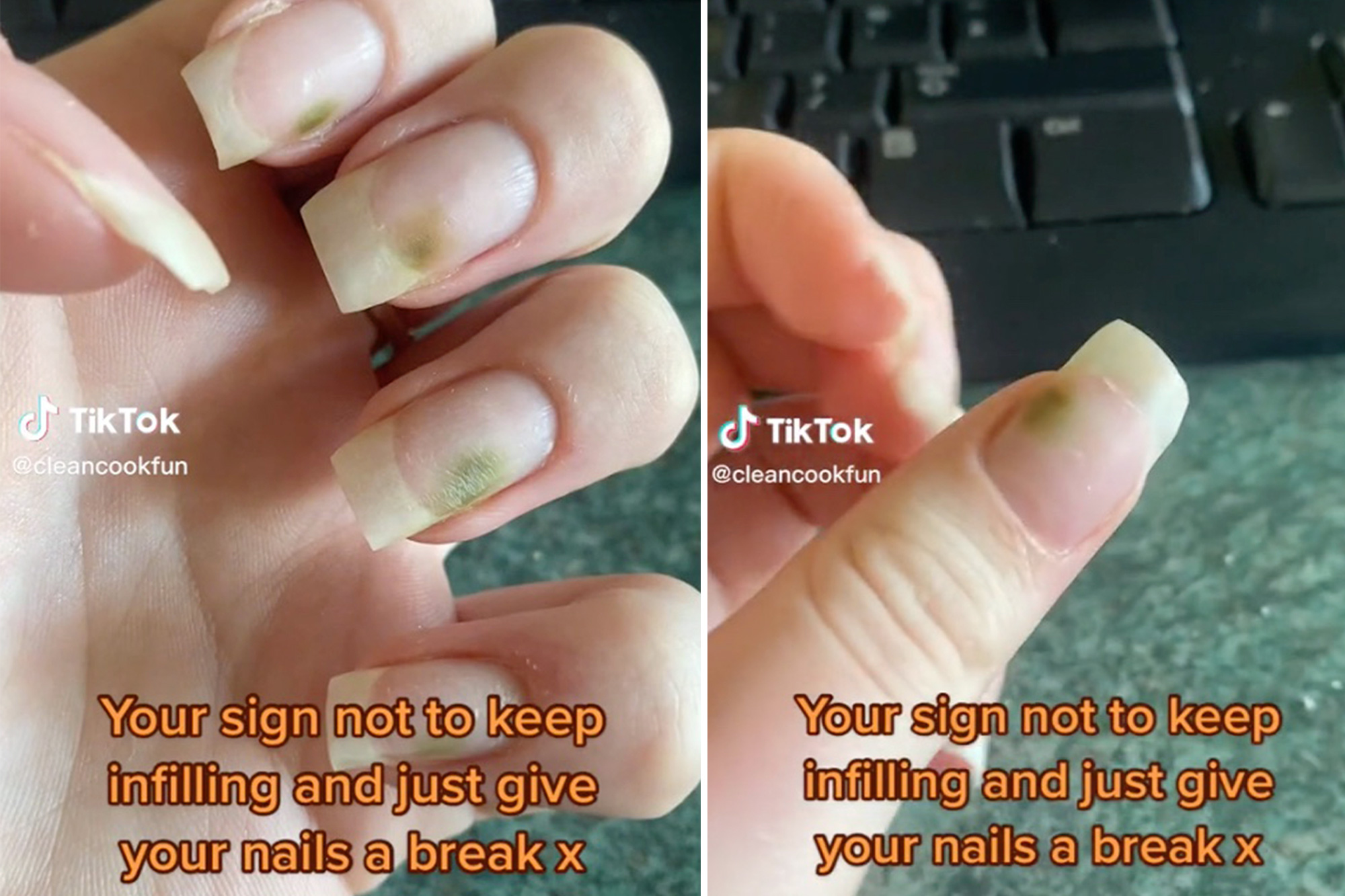
Nail infections and damage to the nail bed are potential health risks associated with dip nails. When the nails are roughed up and sandpapered during the dip nail process, it can create openings and expose the nail bed to bacteria and fungi. This increases the risk of developing nail infections, such as fungal infections. Additionally, the repetitive filing and buffing of the nails can weaken the nail bed, leading to nail damage and even nail loss. It is important to be cautious and maintain proper hygiene to minimize the risk of nail infections and damage to the nail bed.
Debunking Common Myths
There are several common myths surrounding dip nails and their potential risks, particularly the claim that dip nails can cause cancer. However, it is essential to address these misconceptions and separate fact from fiction. Scientific research has not found any evidence linking dip nails to cancer. The chemicals used in dip nails, such as acrylic and resin, are generally considered safe when used correctly. It is important to rely on accurate information and consult professionals in the field to make informed decisions about nail care choices.
Addressing Misconceptions About Dip Nails And Cancer Risk
Scientific research has not found any evidence linking dip nails to cancer. Despite the popular misconception, dip nails do not cause cancer. The chemicals used in dip nails, such as acrylic and resin, are generally considered safe when used correctly. It is crucial to rely on accurate information and consult professionals in the field to make informed decisions about nail care choices. By debunking the myth that dip nails cause cancer, individuals can feel confident and reassured in their choice to enjoy this popular nail enhancement method.
Separating Facts From Fiction Regarding Potential Health Risks
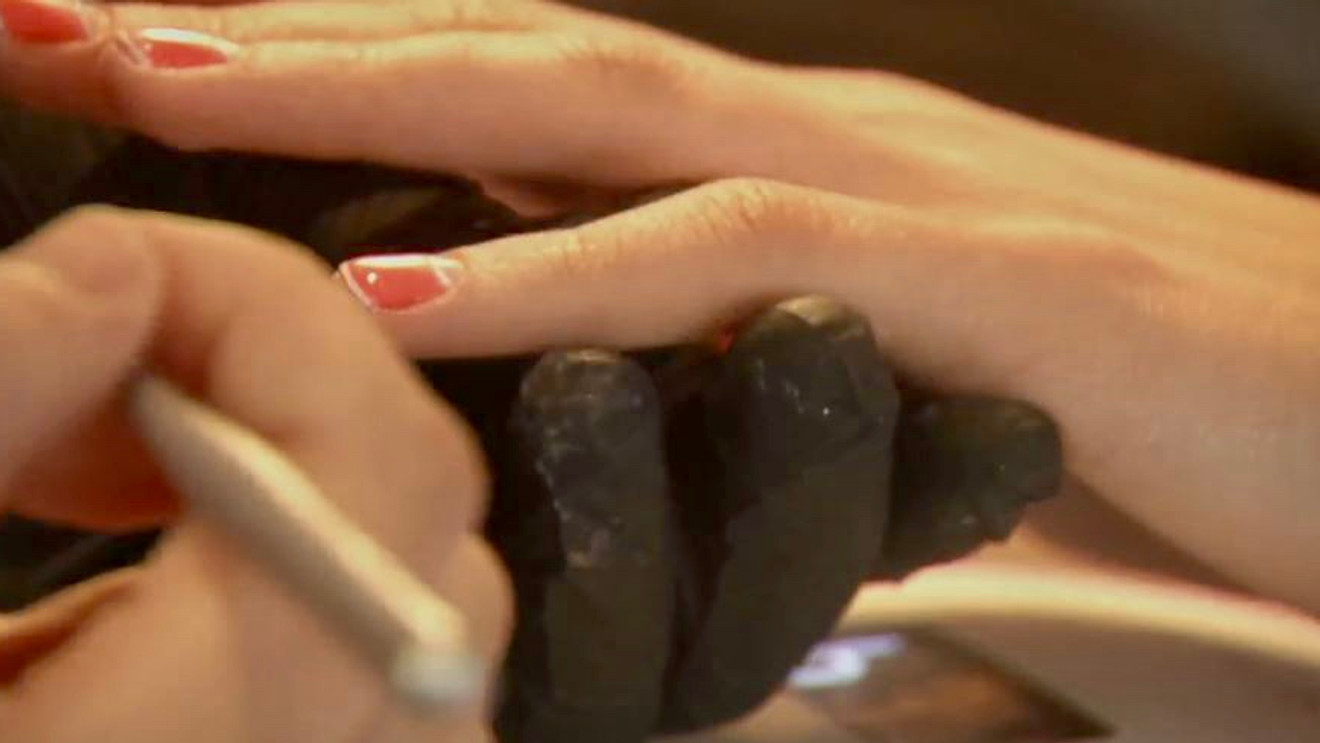
When it comes to the potential health risks of dip nails, it is important to separate facts from fiction. While some concerns have been raised about the ingredients used in dip powder systems, scientific research has not found any evidence linking dip nails to cancer. The chemicals used in dip nails, such as acrylic and resin, are generally considered safe when used correctly. It is crucial to rely on accurate information and consult professionals in the field to make informed decisions about nail care choices. By debunking the myths surrounding dip nails and cancer risk, individuals can feel confident in their choice to enjoy this popular nail enhancement method.
Safety Measures And Precautions
To minimize health risks when getting dip nails, it is important to take certain safety measures and precautions. Here are some tips to consider:
- Avoid excessive exposure to UV light: If your nail technician uses UV lights to cure the nails, make sure to protect your hands and skin from direct exposure. Consider using sunscreen or wearing protective gloves.
- Choose a reputable salon and certified nail technician: Select a salon that follows proper sanitation and hygiene practices. Ensure that your nail technician is trained and certified to perform dip nail procedures.
- Proper maintenance and removal procedures: Follow the recommended maintenance routine and avoid picking or peeling off the dip nails. When it’s time to remove them, consult a professional to ensure safe and gentle removal without damaging the nail bed.
By following these safety measures, you can enjoy dip nails while minimizing potential health risks.
Tips On How To Minimize Health Risks When Getting Dip Nails
To minimize health risks when getting dip nails, individuals can take certain precautions. These include avoiding excessive exposure to UV light by protecting the hands and skin during the curing process and using sunscreen or wearing gloves. It is also essential to choose a reputable salon that follows proper sanitation and hygiene practices. Additionally, individuals should follow the recommended maintenance routine and avoid picking or peeling off the dip nails. When it is time to remove them, it is best to consult a professional for safe removal to prevent damage to the nail bed.
Choosing A Reputable Salon And Certified Nail Technician
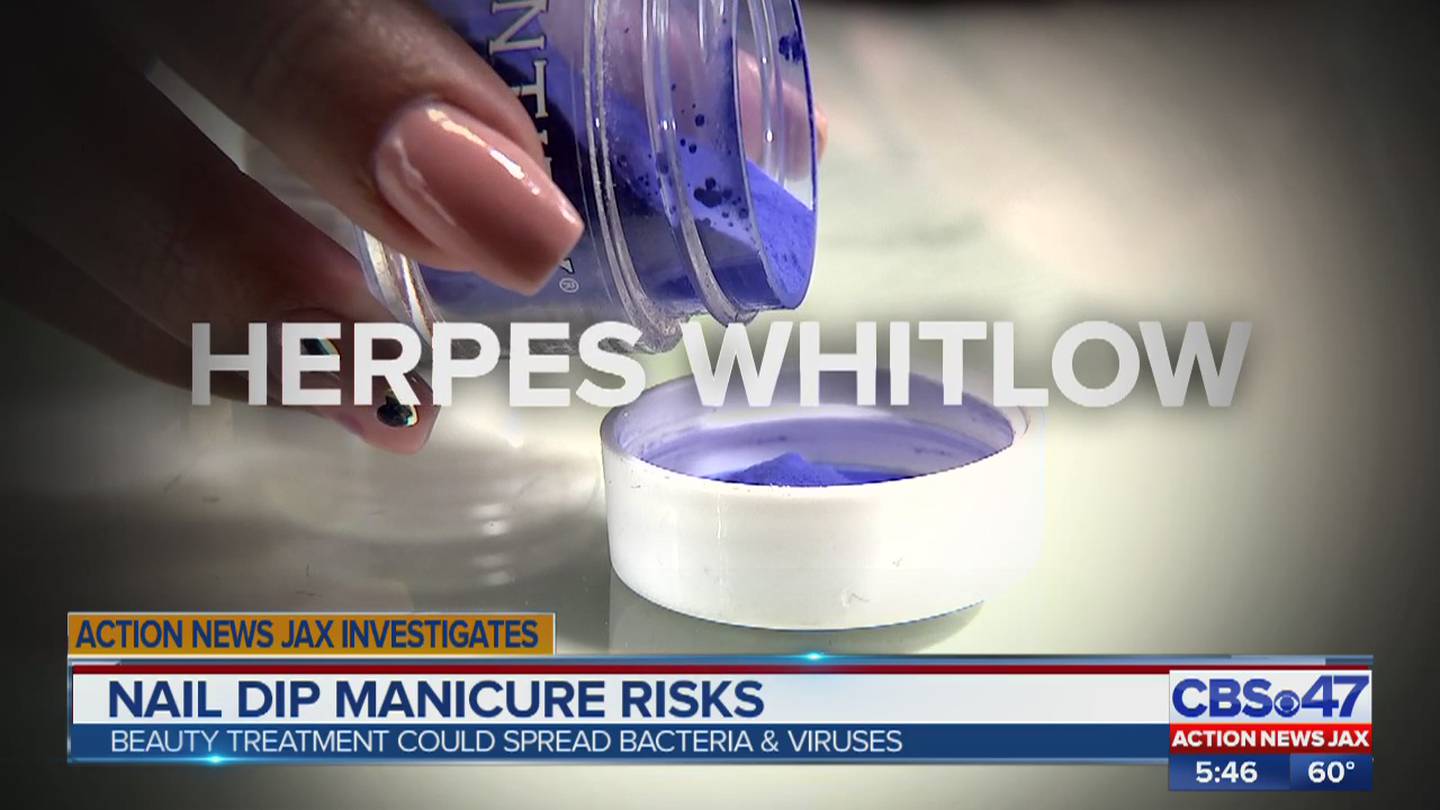
When getting dip nails, it is crucial to choose a reputable salon and a certified nail technician. Here are some tips to help you make a wise choice:
- Research and read reviews: Look for salons with positive customer reviews and recommendations. Check online platforms or ask for recommendations from friends and family.
- Cleanliness and hygiene: Visit the salon beforehand to observe their cleanliness practices. Ensure that they follow proper sanitization protocols for their tools and equipment.
- Certification and training: Verify that the nail technician is certified and trained in dip nail application. This ensures they have the necessary skills and knowledge to provide a safe and professional service.
- Communication and consultation: A reputable salon and nail technician will take the time to understand your needs and address any concerns you may have. They should be willing to answer any questions and provide guidance on the process and aftercare.
By choosing a reputable salon and certified nail technician, you can have peace of mind knowing that you are in safe hands and minimize the risk of any health issues associated with dip nails.
Proper Maintenance And Removal Procedures
Proper maintenance and removal procedures are essential for maintaining the health of your nails when getting dip nails. To ensure longevity and prevent any potential damage, it is advised to follow these tips:
- Regularly moisturize your nails and cuticles with a hydrating oil or cream to keep them nourished.
- Avoid using your nails as tools to prevent them from becoming weak or damaged.
- If you notice any lifting or chipping of the dip nails, visit your salon for timely repairs to prevent moisture from getting trapped and causing infections.
When it comes to removal, it is crucial to have your dip nails removed by a professional nail technician. Trying to remove them at home can lead to nail damage and infections. The technician will use a specific removal process, involving soaking or filing the dip off gently.
By following proper maintenance and removal procedures, you can ensure the longevity and health of your nails while enjoying the benefits of dip nails.
Conclusion
In conclusion, the investigation into the health risks associated with dip nails reveals the importance of being aware and informed about the potential dangers. While there is no direct evidence to suggest that dip nails cause cancer, there are other risks such as allergic reactions, skin irritations, and nail infections. It is crucial for individuals to take safety measures and precautions when getting dip nails, such as choosing a reputable salon, certified nail technician, and following proper maintenance and removal procedures. By making informed decisions and prioritizing nail health, individuals can enjoy the benefits of dip nails with minimal risk.
Summary Of The Investigation Into Health Risks Associated With Dip Nails

The investigation into the health risks associated with dip nails reveals the importance of being aware and informed about potential dangers. While there is no direct evidence to suggest that dip nails cause cancer, there are risks such as allergic reactions, skin irritations, and nail infections. It is crucial for individuals to take safety measures and precautions when getting dip nails, such as choosing a reputable salon and following proper maintenance and removal procedures. By making informed decisions and prioritizing nail health, individuals can enjoy the benefits of dip nails with minimal risk.
Empowering Readers To Make Informed Decisions About Their Nail Care Choices
Empowering readers to make informed decisions about their nail care choices is essential when it comes to maintaining healthy nails. By understanding the potential health risks associated with dip nails and being aware of proper safety measures, individuals can make educated choices about their nail care routine. It is important to research and choose reputable salons and certified nail technicians who prioritize hygiene and follow proper procedures. By staying informed and taking necessary precautions, readers can enjoy the benefits of dip nails while minimizing the risk of adverse health effects.
Frequently Asked Questions about Dip Nails and Cancer
Q: Do dip nails cause cancer?
A: There is no scientific evidence to suggest that dip nails themselves directly cause cancer.
Q: What exactly are dip nails?
A: Dip nails, also known as SNS nails or powder manicures, involve a process where colored powder is applied to the nails after a base coat and sealed with a top coat.
Q: Are there any known health risks associated with dip nails?
A: While dip nails are generally considered safe when done correctly, there are a few potential risks to be aware of. The use of chemicals, such as those found in the adhesive used to apply the powder, can cause skin irritation or sensitivity. Improper removal of dip nails can also damage the nail bed.
Q: Are the chemicals used in dip nails toxic?
A: Some of the chemicals used in dip nails, such as methacrylic acid and butylated hydroxytoluene (BHT), have been classified as potentially toxic. However, when used in small amounts and with proper ventilation, the risk of adverse health effects is minimal.
Q: Can the inhalation of dust during the application process be harmful?
A: Inhaling excessive amounts of dust from the dip powder could be harmful, as it may contain ingredients that are classified as potentially hazardous. Nail technicians and clients are advised to work in well-ventilated areas or use protective masks to minimize this risk.
Q: Can nail salon visits contribute to an increased risk of cancer?
A: Visiting a nail salon alone does not significantly increase the risk of cancer. However, regular exposure to chemicals found in nail products and poor ventilation in salons could potentially lead to health concerns over time.
Q: How can I minimize any potential risks associated with dip nails?
A: To minimize risks, it is recommended to choose a reputable salon with proper ventilation. Ensure the nail technician follows correct sanitization procedures and uses high-quality products. Additionally, practice good nail care habits, moisturize your cuticles regularly, and avoid prolonged or excessive exposure to chemicals.
As always, it’s important to consult with a medical professional if you have specific concerns or experience any unusual symptoms related to your nails or overall health.

I am proud to offer non-toxic beauty options. The gel polishes I offer are “9-Free”, free of nine of the most commonly found allergens and toxic chemicals in nail polish, and cruelty-free, vegan, and HEMA-free. The nail lacquers I offer range between “7-Free” and “16+-Free” and are also cruelty-free and vegan.